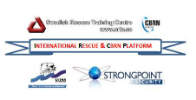
International Rescue CBRN Platforms (IRCP) is a former Swedish Government fire and rescue training centre now ran by private enterprise to train defence, fire and rescue services and to provide facilities for the media.
The Skovde-based centre is located across 313 acres (126.5ha). It contains factories, domestic and industrial buildings, transport, industrial and medical facilities.
Teaching and training facilities for the armed services / fire and rescue
IRCP is ideal for teaching, training and evaluating people and procedures. This includes emergency and armed services and civil defence corps, volunteer rescue workers, infrastructure owners and operators, as well as individuals and corporate organisations.
Its range of training facilities creates realistic operational situations. Teaching facilities comprise classrooms, and video recording, while realistic ‘sets’, protective clothing, fire engines and hazmat vehicles are amongst the firm’s operational tools.
IRCP provides training and exercises ranging from fire prevention to fire fighting and rescue, as well as handling real hazmat and chemical, biological, radiological nuclear and explosive material for defence and counter terrorism.
Counter-terrorist, hostage prevention and rescue facilities
The IRCP facilities provide operational training in various counter-terrorist and hostage prevention and rescue situations. This includes VIP protection, defensive driving, counter-kidnap manoeuvring on foot or in vehicles, and hostage rescue training for potential victims and rescue teams, such as SWAT or special forces.
Both the range and variety of IRCP facilities allow these drills to be rehearsed and evaluated in scenarios and settings in war-ravaged urban chaos, the rural idyll, inner city, hospitals, apartment blocks, and private houses.
Live agent CBRNe training capabilities for national response operations
The live-agent CBRNe coaching capabilities at IRCP enables all aspects of CBRNe practice to be carried out, from individual training to full blown national response covering detection (including reconnaissance and survey), individual and collective protection (COLPRO), decontamination, and medical training.
The facility assists specialist schooling covering sampling and identification of biological, chemical and radiological agents (SIBCRA), international inspection regimes for weapons of mass destruction (WMD), conventional weapons, forensic examination of crime scenes, urban search and rescue (USAR) training, as well as testing and validating procedures.
It also teaches users how to handle debris fields following a terrorist incident, a dirty bomb, air crash, or a major fire and hazmat event.
Specialist instructors trained in incident command and crisis response
Experienced tutors are available to assist in developing skills ranging from incident command down to crisis response.
The special skills and facilities at IRCP bring a different dimension to equipment assessment and also to training, action and other movies, as it is the ideal set as a backdrop for operational trials, action scenes in realistic settings and for publicity photographs and footage.
The special effects available as routine prevent special sets having to be built and the plentiful hotels in the local area make trials, evaluations and filming even with a large team or crew simple and easy.
Scenarios for these scenes mirror those likely to be found in real situations and realism is thus built-in.
Expert coaching for realistic film scenarios
All training at the facility is filmed and specialist staff instruct and evaluate the training as it progresses. They direct the actors and extras who provide realistic crowd scenes and play the parts of fire, CBRN and hazmat casualties and other likely participants from priests to politicians, frequently in a multi-language environment.
Given the degree of realism involved in this internationally available CBRN and rescue platform, it is possible to run combinations of skills training with ease. This means a CBRNe forensic package can be used to train, test, and evaluate the first responders, follow up teams and the forensic specialists in real time at the same incident.
Similarly, an urban search and rescue activity can be run in conjunction with a counter improvised explosive device (IED) activity or dirty bomb incident whilst making sure that the incident management and command skills at local and national levels are tried and tested.





